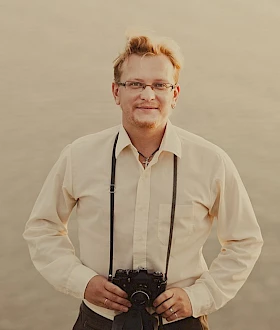Sights of Northern Cyprus
Northern Cyprus is not quite the cradle of civilization, but it is definitely one of the most interesting places for tourists interested in history.
It offers not only stunning beaches, entertainment for every taste, fascinating festivals, and amazing authentic food. Until 1974, after which the island was divided between the Republic of Cyprus and the TRNC, this territory was united—for Ancient Greece, the Byzantines, the Romans, the Crusaders, the Venetians, and the Ottoman Empire.
Thus, the island's historical landmarks span many eras. There are unique fortresses, the oldest ship in the world raised from the sea floor, and ancient cities that existed and flourished thousands of years ago...
We are not talking about various monasteries here—we have a separate article on Christian churches in Northern Cyprus. Here, we’ve gathered brief information and links to non-religious landmarks in the northern part of the island.
We also have a separate article on the museums of Northern Cyprus—where detailed information about these educational institutions is provided.
- What to see in Nicosia
- What to see in Famagusta and the surroundings
- What to see in Girne and the surroundings
- What to see in Güzelyurt and the surroundings
- What to see in Karpaz
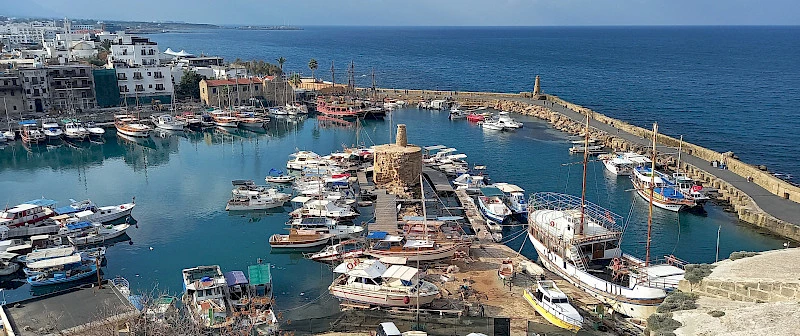
What to See in Nicosia
Kyrenia Gate
Constructed in 1567 by the Venetian architect Savorgnano, it was also called the «Governor's Gate». Today, the Kyrenia Gate houses a tourist information center.
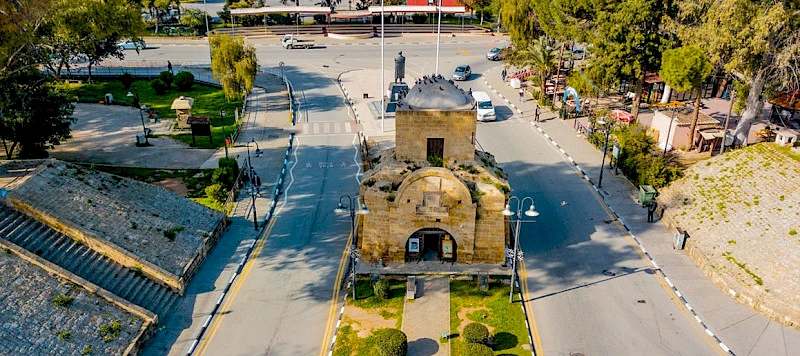
Bandabuliya Market
Located in the old city of Lefkoşa, the Bandabuliya Market was built during the British rule. It is a favorite spot for locals and tourists alike.
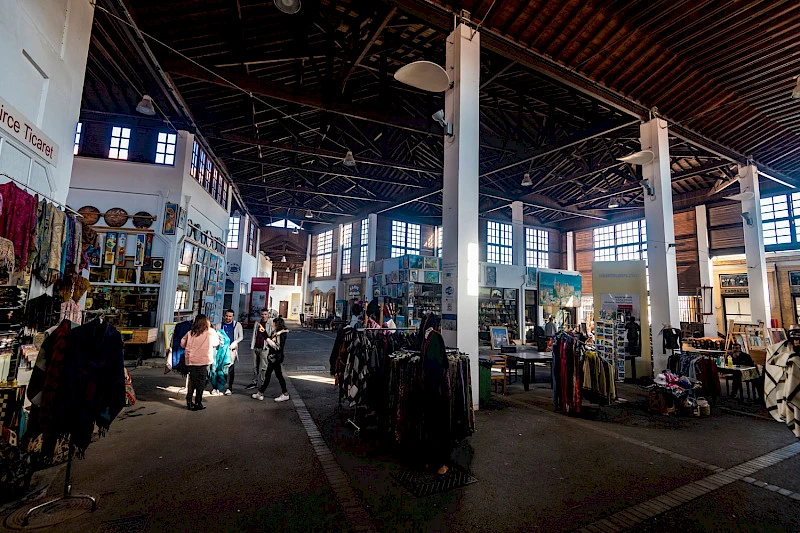
Selimiye Mosque
Built in 1325 as the Roman Catholic Cathedral of Saint Sophia in Gothic style, it was converted into a mosque after Cyprus was conquered by the Ottoman Empire in 1571. The mosque houses a magnificent collection of ancient artifacts.

Bedesten
A historic building in the Selimiye Quarter. Originally, it was the Church of Saint Nicholas, built in the 16th–17th centuries, though the exact date is unknown. It was later converted into a covered market. In 2009, following restoration, a cultural center was opened in Bedesten.
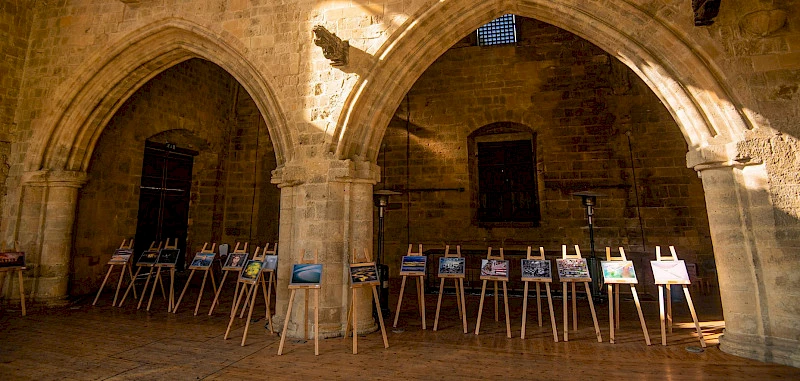
Büyük Han
The largest caravanserai, built by the Ottomans in the 16th century in an Arabic style, served as an inn. Today, it hosts an arts center. Visitors can relax in cozy cafés and purchase souvenirs in the shops located within the complex.
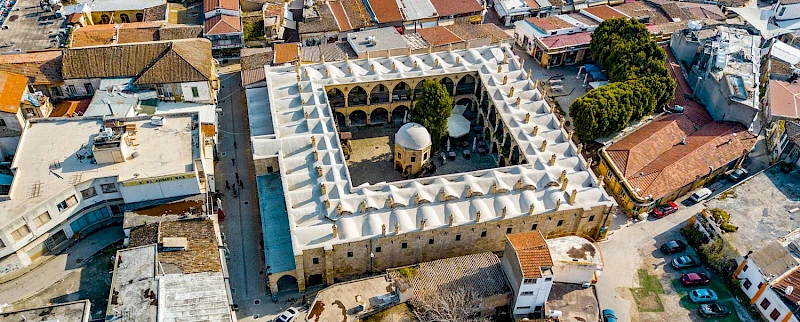
Whirling Dervishes Museum
Here, you can see an exhibition dedicated to the life and lifestyle of the Whirling Dervishes religious order.
Old Hammam
The Büyük Hammam is the oldest Turkish bath in the city, located in the İplik Bazaar Quarter, built on the site of the 14th-century Church of Saint George de Poulain. The building was converted into a Turkish bath between 1571 and 1590, during the early years of Ottoman rule on the island.
- Read more: Old operational hammam in Northern Cyprus
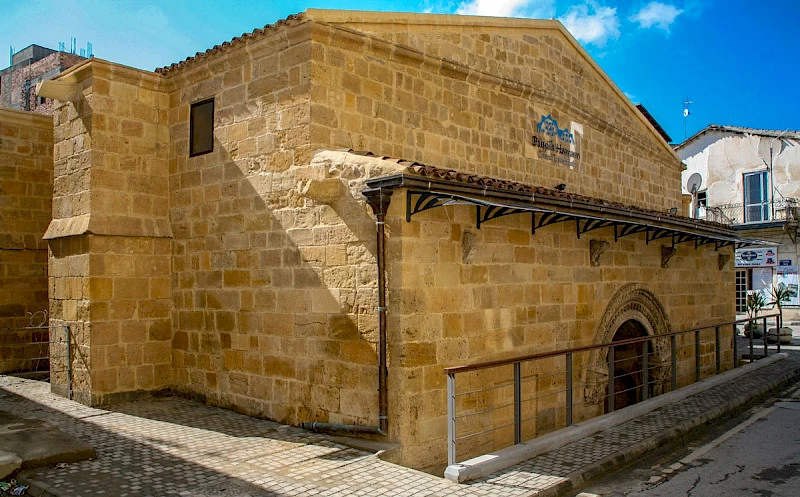
What to see in Famagusta
Ancient City of Salamis
One of the most striking monuments of the ancient world. Located 6 km from Famagusta. For over 1,500 years, Salamis was the political and economic center of Cyprus. You can see the baths, the ancient theater, the Temple of Zeus, the agora, and the necropolis here.

Lala Mustafa Pasha Mosque (St. Nicholas Cathedral)
St. Nicholas Cathedral was built in the 14th century by the Lusignan dynasty in the Gothic style. In 1571, after Famagusta was captured, the cathedral was converted into a mosque.
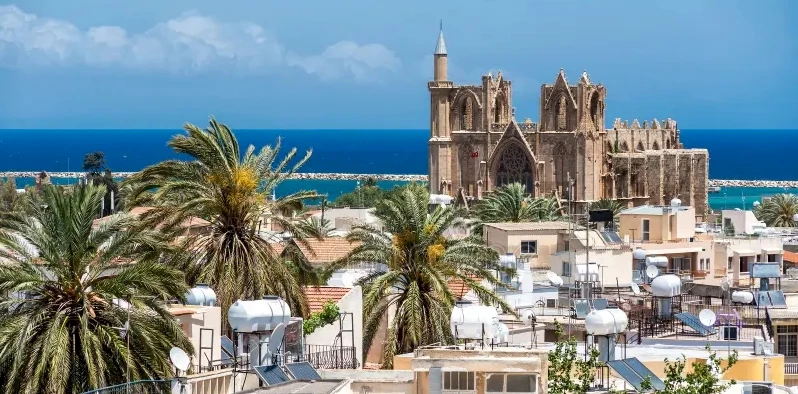
Castello Fortress and Othello Tower
The fortress was built to protect the harbor from sea attacks. It is a rectangular structure with four towers at the corners. One of the towers is named Othello—in honor of the Shakespearean character.
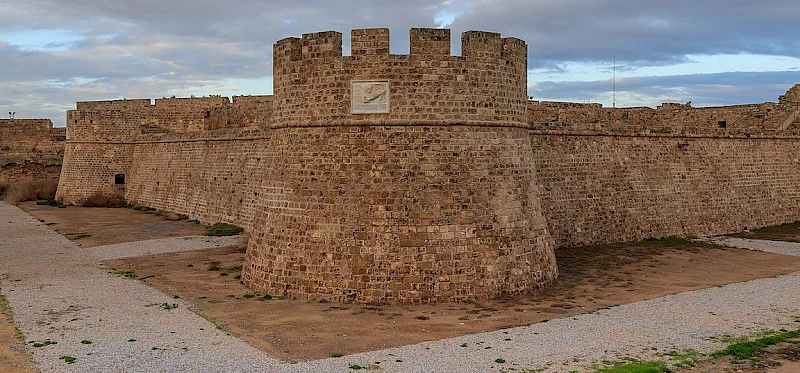
Abandoned City of Varosha
Known as a ghost town, this is a district of Famagusta that was closed off by Turkish forces in 1974. Before that time, Varosha was a prestigious, fashionable area, favored by many global celebrities. Since 2020, Varosha has been open to tourists.
- Read more: how to get into Varosha?
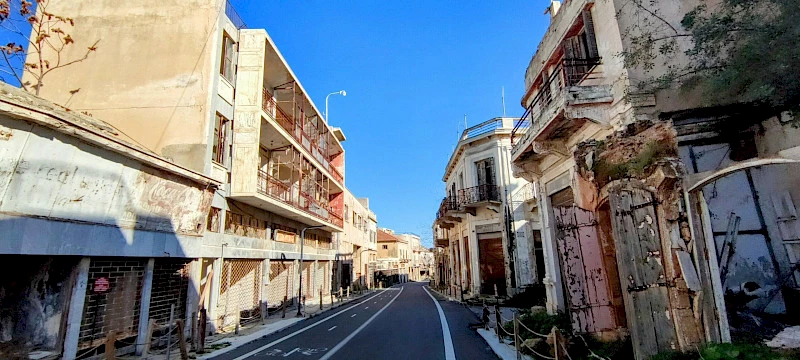
Jambulat Museum
Located in the southern part of the fortress walls. After the capitulation of Famagusta, the brave Turkish army officer was buried in the bastion. Around the sarcophagus, old battle flags are displayed. The museum contains unique artifacts (samples of weapons, Turkish costumes, and documents).
Martinengo Bastion
It is part of Famagusta's fortification system along with the city walls, the Ravelin Bastion, and the Othello Castle. However, it lacks gates; the walls are up to six meters thick, with bedrock at the foundation to prevent tunneling.
What to see in Girne
Kyrenia Castle
A Venetian fortress with an ancient stone chapel inside, a museum of sunken ships (with the oldest recovered from the sea floor), and a magnificent view of the harbor. It is one of the island’s major landmarks.
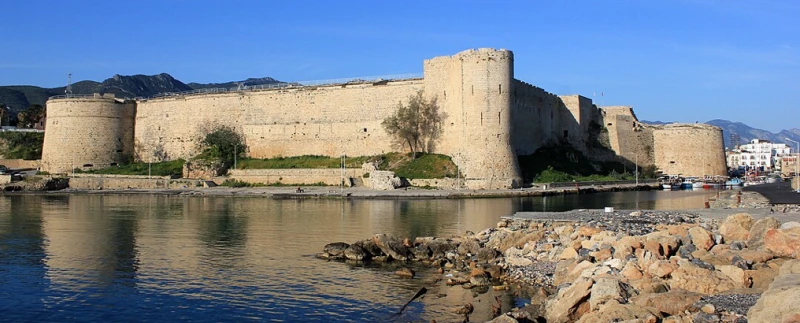
Bellapais Abbey
A Gothic architecture monument, founded in the 12th century, located in the village of Bellapais. From the abbey’s observation deck, you get a magnificent panoramic view of the sea and the foothills of the Kyrenia mountain range. The abbey itself is beautiful, and symphonic concerts are held there.
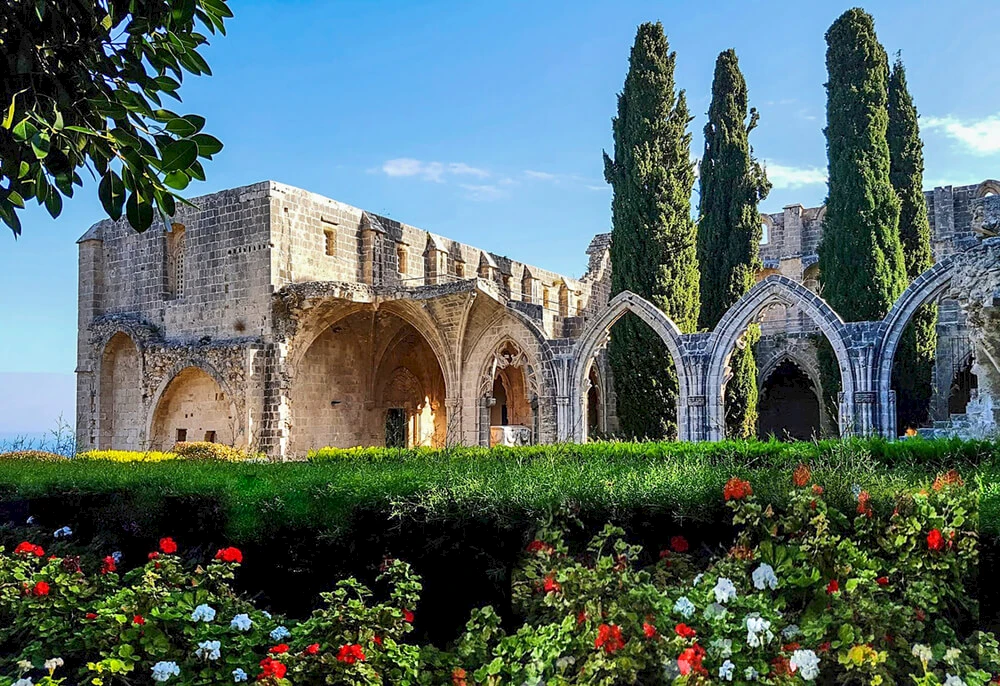
St. Hilarion Castle
Located at an altitude of 750 meters above sea level on the slope of the Kyrenia mountain range. It is one of the symbols of Northern Cyprus and the entire island.

Buffavento Castle
The most inaccessible castle of Cyprus was built by the Byzantines to protect against Arab raids at an altitude of 950 meters above sea level. Getting there is truly challenging.
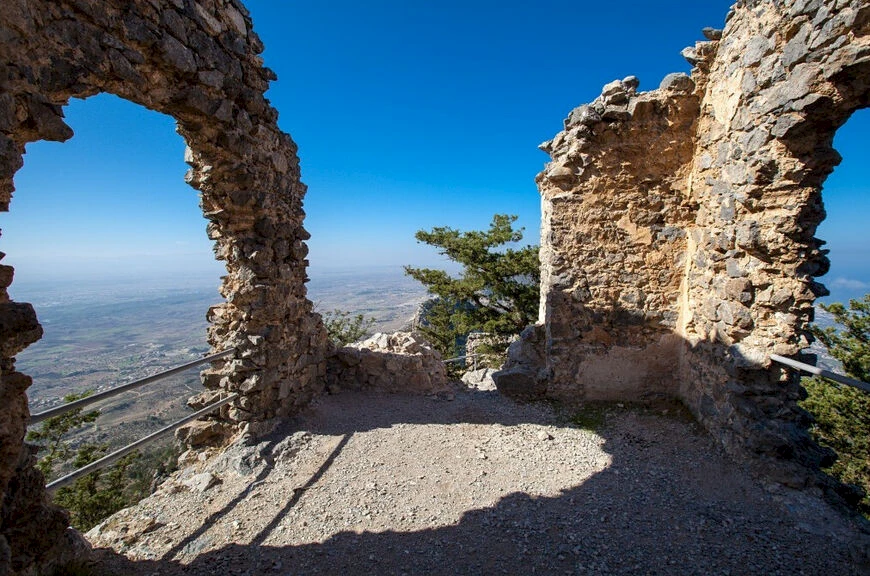
Karmi Village
This highland British village of Karmi, nestled in greenery and flowers, with old authentic houses, will leave no tourist indifferent. A British pub and a red phone booth are also available.
- Read more: Karmi - British village in Northern Cyprus
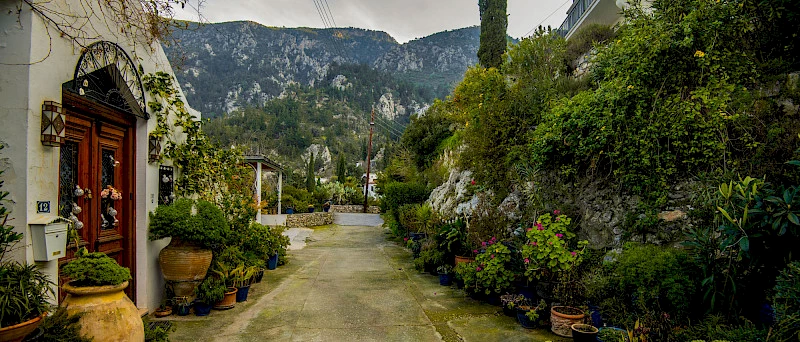
Miniature Museum
Opened in 2015 in the village of Tatlisu on the grounds of an ancient church. Many models of famous landmarks, mentioned in this article, are displayed outdoors.

What to See in Güzelyurt
The Blue House
Also known as Mavi Köşk. This house, built in 1957, belonged to Paulo Paulides, an Italian of Greek origin. Paulides was an attorney for Archbishop Makarios and, at the same time, the region’s largest arms dealer.
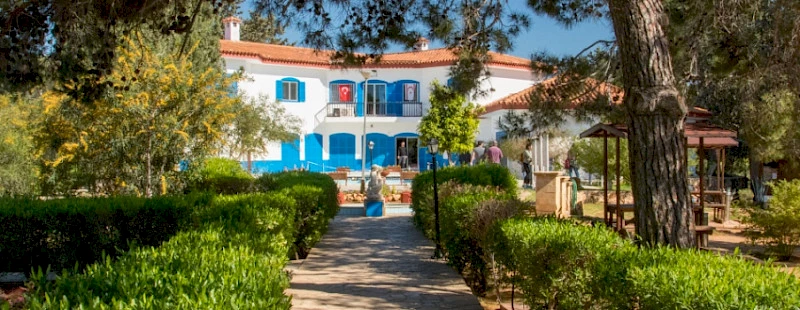
Archaeology and Natural History Museum
Located next to the Church of St. Mamas. Here you can explore the exhibits of flora and fauna, as well as see a collection of ceramics, archaeological remains, ancient sculptures, and tools.
The Oldest Trees in TRNC
A large olive grove with ancient trees is located near the village of Kalkanlı, near Güzelyurt. Some trees are 700-800 years old, true elders of Cyprus. Despite the tragic fire in 2020, some of the trees have survived.
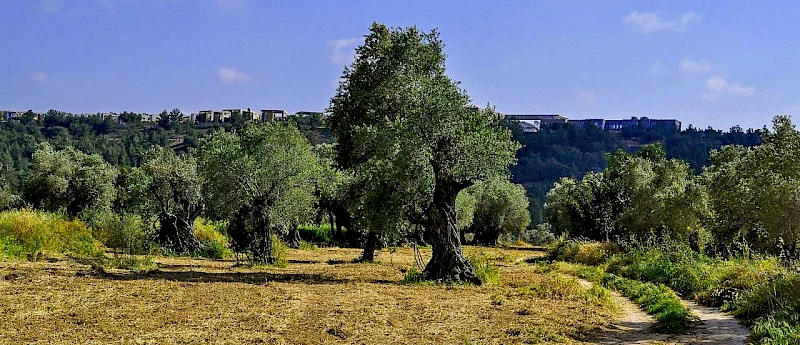
Ancient City of Soli
Founded in the late 11th century BC. To this day, several buildings have survived: the basilica, agora, theater, and necropolis.
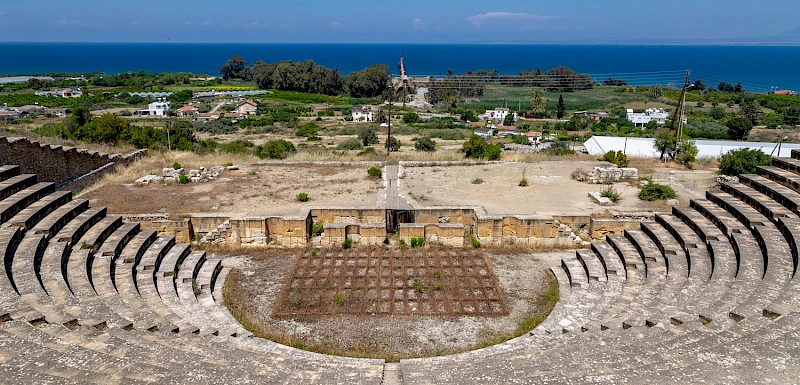
Ancient City of Vouni
Another ancient Greek city, even better preserved, located on a picturesque hill. As a bonus, there is an excellent view of both the mountains and the sea.
- Читайте подробнее: античный дворец Вуни - что посмотреть и как найти

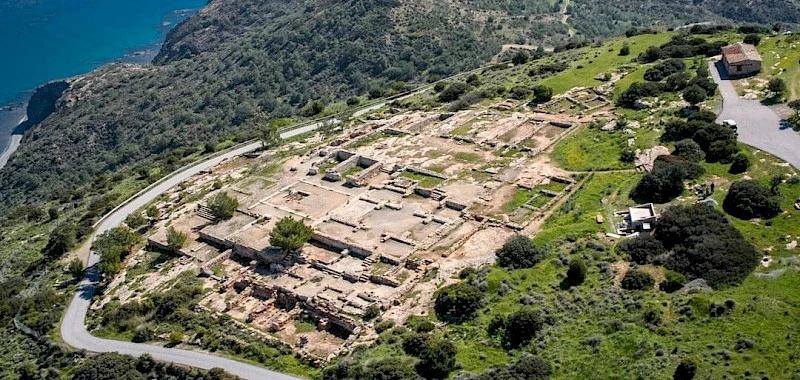
What to See in Karpaz
Kantara Castle
Located at the very beginning of Karpaz, and in clear weather, offers a view of the entire peninsula. It is convenient to visit as the road leads right to the entrance.
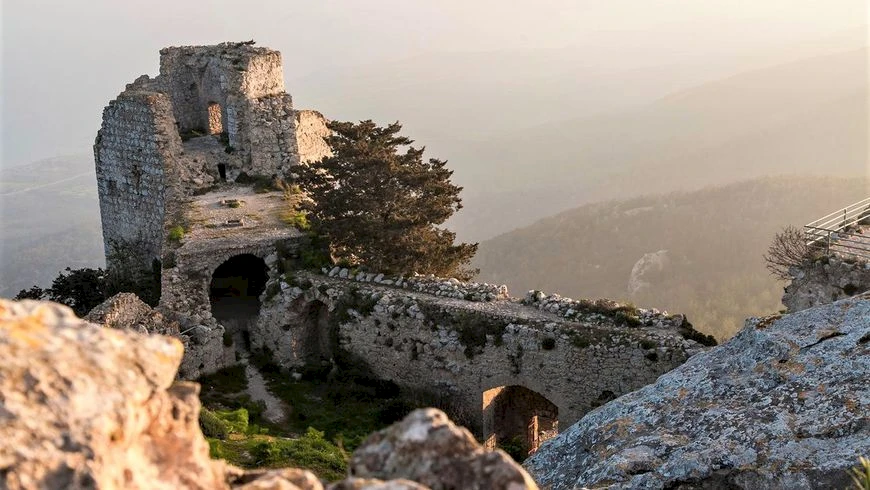
Incirli Cave
This is the deepest cave in both Northern and Southern Cyprus. It was discovered accidentally and now has infrastructure and lighting.
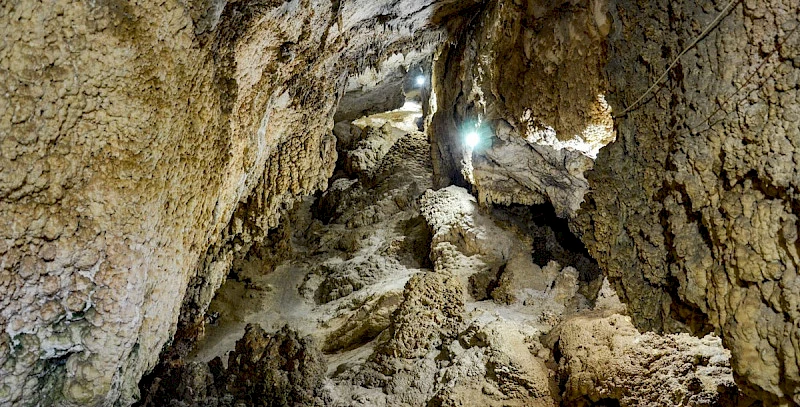
The Famous Karpaz Donkeys
Yes, it's not a castle or a beautiful rock formation, but these hoofed animals have long become a symbol of the peninsula. Every tourist feeds them specially brought carrots.
- Read more: How to find donkeys in Karpaz?
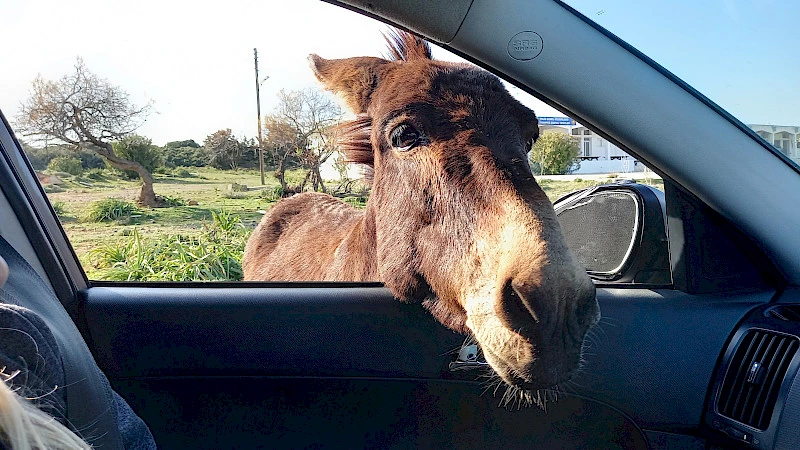
Follow us on Instagram and Telegram for the most interesting updates about the attractions of Northern Cyprus!

